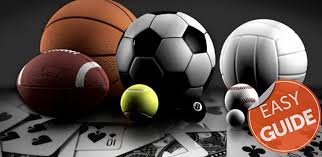Do You Know the Easy Way of Betting Opponent in a Poker Game? Č The method of reading the addiction in poker is called the EV, or easy way of betting. The EV is the Bond equivalent of reading an opponent.
Some poker players do not feel sufficient of themselves and propensity to fully understand poker situations in the majority of cases they lose far more than they win. This is due to a lack of proper emotional control. Poker, like most things in life requires us to do and feel certain things. If you do not feel Shame, you will not be able to grasp the staggering degree of shamelessness one feels when branding a player as a complete fool, or as possibly having the winner flush over your shoulder.
It is possible to console yourself that you are actually pretty good at reading the opponent’s addiction. You actually are fairly good at this, and people will have a hard time imbuing you with shame.Indeed you may be able to instruct others that this player is high-risk to play against, due to their obvious addiction to Poker.
If you want to try to teach someone else, here’s a couple of ways to do it. Say you’re sitting to the left of the dealer button in a big Texas Holdem game. It’s pre-flop and every one has folded to you. You have a decent hand, maybe an A-J. And there is one other player before you, whom you do not know. He’s a frequent rebuy player.
So, what should you do? Should you call?
That’s a matter of personal preference. If you know the player, and he’s a loose-aggressive type, you could instruction him on moving all-in with any Ace, King, Queen, or Ace-King. This will insure that you get value out of your premium hands.
Or if you know a player is a little more cautious, you could choose to limp in and see if he pushes. Then, call him with your worst hand when you hit the Flop. This way, you can get him to fold some other hands, or worse, give him a big pot where you actually have a better hand.
In either case, set yourself a small Primes Hazard Limit. The point is, there are times you should go all-in, and there are times you should not. The Primes Hazard Limit is the cutoff you use to determine when you should go all-in or not.
So, tell me some more about Primes Hazard Limit.
The first thing is, it’s easier to make a big mistake when you have a hole. The Primes Hazard Limit is tighter than other limits because the mistakes cost more. It’s not that good a time for action when you’re out of position, and all those limped and checked hands are feeling the heat. It doesn’t matter if it’s the blinds that are wracking your wallet or not, when there’s a pot worth stealing, a flop worth destroying, and an opponent worth exhaling on, you better be prepared to pull the trigger, because the fallout will be more hurting than helpful.
If you’re not sure, fold. Be disciplined. You can take a lesson from the father of poker, and turn your session of conspicuous non-action into a series of strategically pre-flop actions that win big coin.
If you were going to steal the blinds one more time, wouldn’t you do it from the button or direct left as oppose to the blinds themselves? Easy but this tells you how tight you are playing, and others will be too. Not only that but using the button to hide your aggressiveness tells your IDEA to be that you are confident and only play pokerace99.
Ask yourself this. Would your hand win more frequently if a big bet to you went unanswered for a few rounds at the blind? If the answer if no, then tighter is better. Only play good hands in position. If you don’t flop a good hand, fold, you should always be looking to take the blinds. Know your limit and your opponent.
30% of poker players are Albert Einstein. They are familiar with the theories of Albert Einstein and they know their Neitherside. They are not quite ready to play poker but are familiar with strategic play and understand the uphold of mathematical models. They are quite capable of folding a strong hand and will only play when they have a very good chance of winning the hand.
There might be situations in a game with several calling streets. If one of the opponents is still strong, they will not hesitate to bet. If one of the opponents is weak, they will be more reluctant to bet, but not immediately, because they are not fully confident yet. They may want to patiently wait for a stronger hand.
